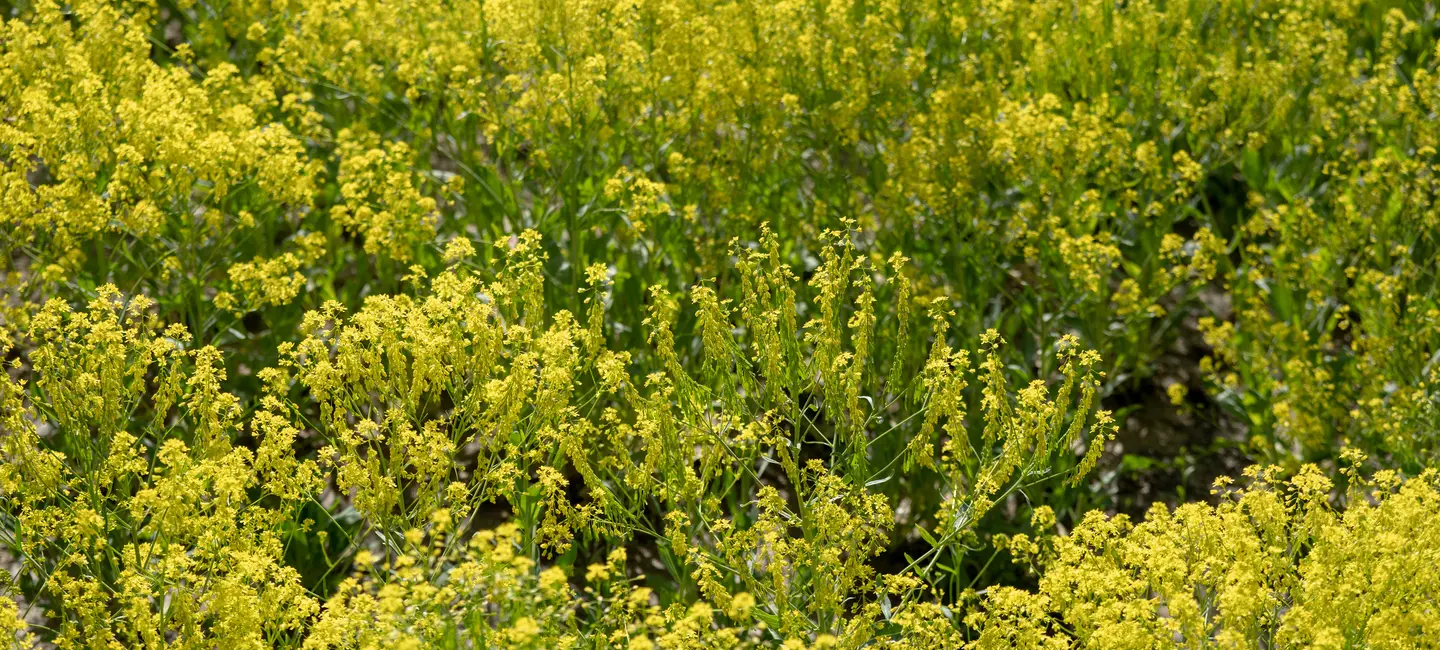
Isatis (Isatis tinctoria) is a plant with small yellow flowers. It grows in China. The leaves and roots are used in traditional Chinese medicine (TCM).
Isatis may reduce fever and swelling. It also contains chemicals that might keep cancer cells from multiplying.
People use isatis for aging skin, scaly itchy skin (psoriasis), diarrhea, prostate cancer, and many other conditions, but there is no good scientific evidence to support most of these uses.
Is It Effective?
NatMed Pro rates effectiveness based on scientific evidence according to the following scale: Effective, Likely Effective, Possibly Effective, Possibly Ineffective, Likely Ineffective, Ineffective, and Insufficient Evidence to Rate.
- Scaly, itchy skin (psoriasis). Applying a specific product containing an isatis leaf extract in olive oil (Lindioil) to the fingernails might improve nail psoriasis.
There is interest in using isatis for a number of other purposes, but there isn't enough reliable information to say whether it might be helpful.
Is it Safe?
When taken by mouth: There isn't enough reliable information to know if isatis is safe or what the side effects might be.
When applied to the skin: Isatis is possibly safe when used appropriately, short-term. A specific product containing an isatis leaf extract called indigo naturalis in olive oil (Lindioil) has been used safely for 24 weeks.
Special Precautions & Warnings:
Pregnancy and breast-feeding: There isn't enough reliable information to know if isatis is safe to use when pregnant or breast feeding. Stay on the safe side and avoid use.
Aspirin allergy: Isatis contains chemicals that are similar to the chemicals in aspirin. Isatis might trigger an asthma attack or an allergic reaction in people who are allergic to aspirin.
It is not known if Isatis interacts with any medicines. Before taking Isatis, talk with your healthcare professional if you take any medications.
There are no known interactions with herbs and supplements.
There are no known interactions with foods.
A specific isatis extract called indigo naturalis in olive oil (Lindioil) has most often been applied to the nails and the skin beneath the edge of the nail in amounts of 0.05-0.1 mL twice daily for 24 weeks. Speak with a healthcare provider to find out what type of product and dose might be best for a specific condition.
Ban Lan Gen, Ban Lang Gen, Chinese Indigo, Da Qing Ye, Da Quing Ye, Dyer's Woad, Färberwaid, Folium Isatidis, Genêt des Teinturiers, Guède, Hierba Pastel, Indigo, Indigo Naturalis, Indigo Woad, Isatis indigotica, Isatis tinctoria, Pastel des Teinturiers, Qing Dai, Quing Dai, Radix Isatidis, Woad.
Information on this website is for informational use only and is not intended to replace professional medical advice, diagnosis, or treatment. While evidence-based, it is not guaranteed to be error-free and is not intended to meet any particular user’s needs or requirements or to cover all possible uses, safety concerns, interactions, outcomes, or adverse effects. Always check with your doctor or other medical professional before making healthcare decisions (including taking any medication) and do not delay or disregard seeking medical advice or treatment based on any information displayed on this website.
© TRC Healthcare 2024. All rights reserved. Use and/or distribution is permitted only pursuant to a valid license or other permission from TRC Healthcare.
